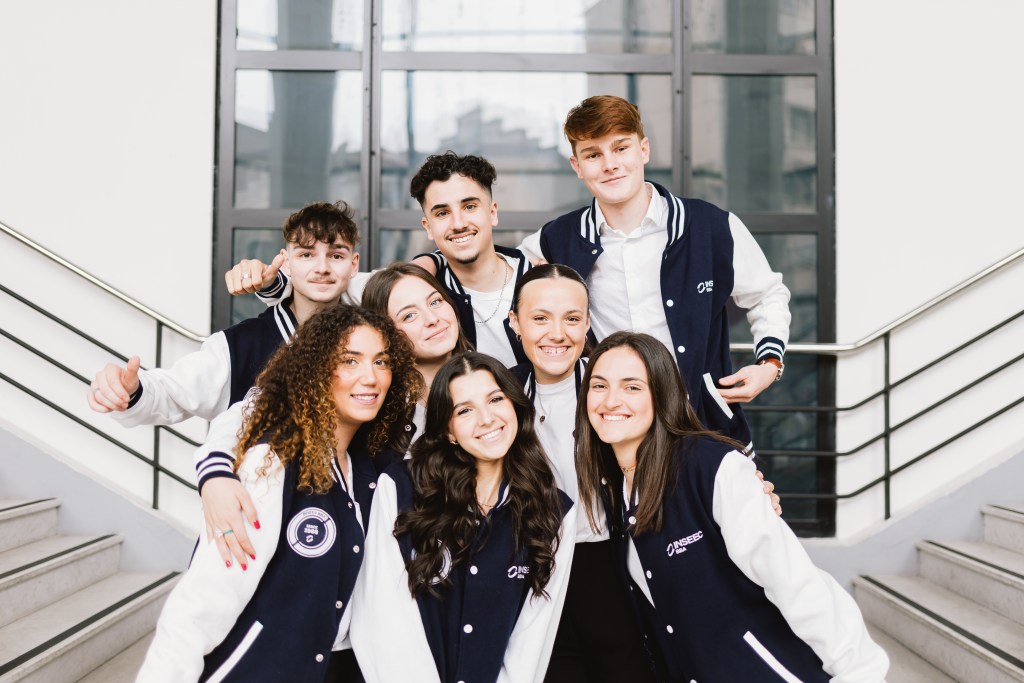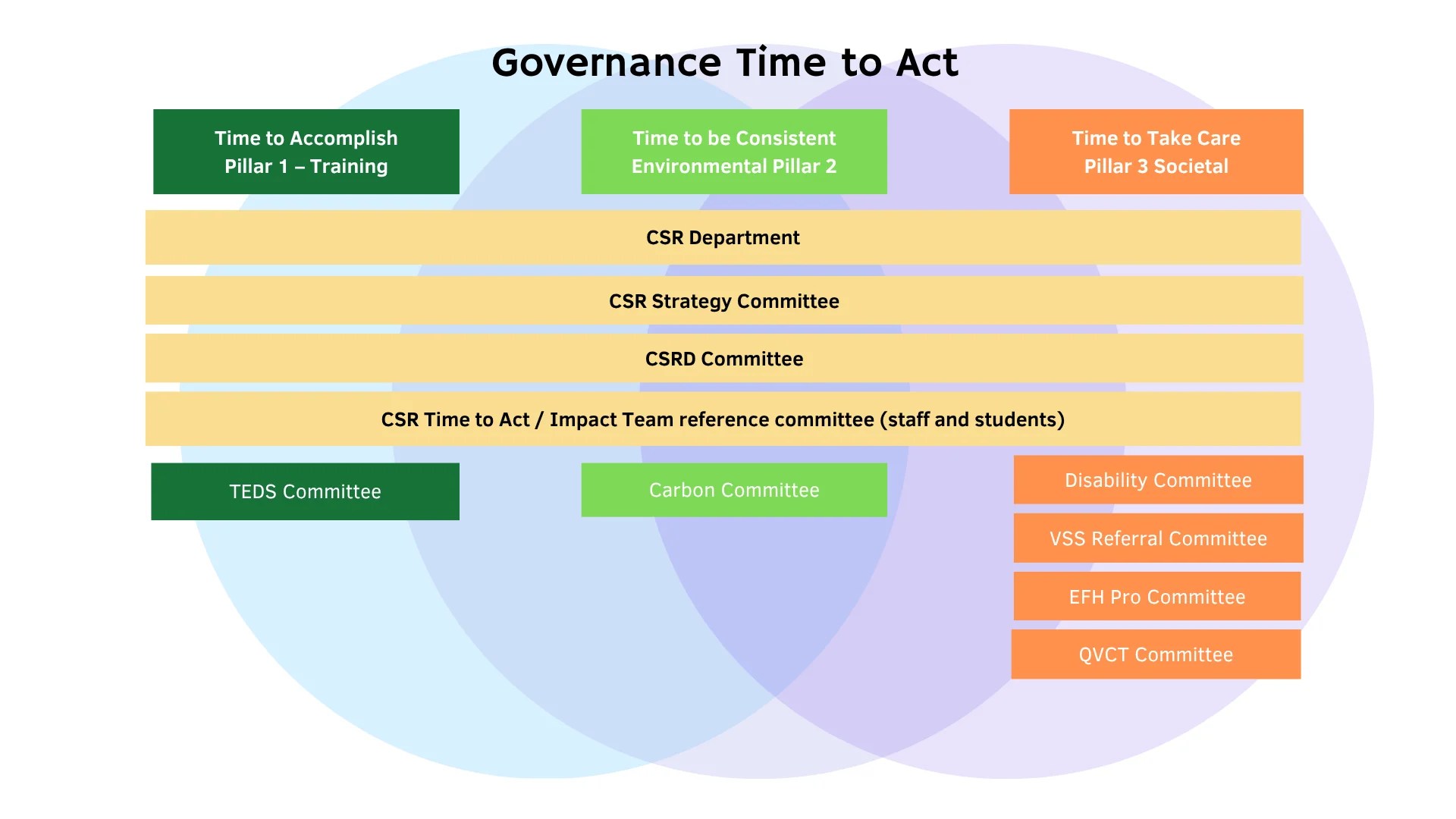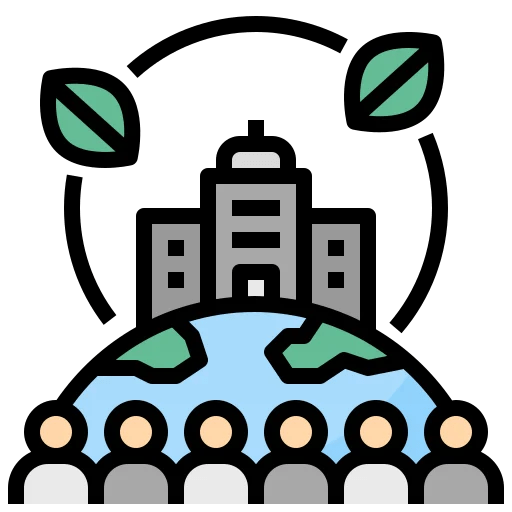1 committed governance,
3 strategic pillars,
3 communities:
Concrete actions for real impact
With the support of governance bodies, the CSR department is rolling out the “Time to Act” strategy both in France and internationally. This strategy is built around three main pillars, designed to serve the three key communities within the OMNES Education Group: campuses, students, and employees.
To implement this strategy, the CSR department coordinates a network of over 100 “Time to Act” ambassadors and collaborates with all operational departments through 8 CSR committees. The goal is to foster synergies among different stakeholders to drive impactful social and environmental initiatives, promoting sustainable transition within the group.
This approach aims to maximize the effectiveness of social and environmental responsibility initiatives by encouraging collaboration and innovation at all levels of the organization.



THE 3 STRATEGIC PILLARS
Time to accomplishEcological transition in training and research
To address current challenges, it is essential to integrate social and environmental transition at the core of both academic programs and research initiatives. By developing a curriculum focused on Corporate Social Responsibility (CSR), the goal is to sustainably transform the academic landscape. This approach aligns with the Climate-Biodiversity plan of the Ministry of Higher Education and Research (MESR) and the 17 Sustainable Development Goals (SDGs) outlined in the 2030 Agenda.
Training students and employees on these issues will enhance their commitment and understanding of societal and environmental challenges, empowering them to become the change-makers of tomorrow.
time to be consistent
environment:
decarbonation and sustainability
To reduce our environmental impact, we are committed to cutting our greenhouse gas (GHG) emissions by 14% by 2030 and contributing to Europe’s goal of carbon neutrality by 2050.
We will implement targeted actions in the most polluting sectors, while also working to preserve biodiversity and develop a climate change adaptation plan.
Our objective is to adopt a more sustainable and responsible approach in the areas of procurement, digital tools, mobility, food services, and overall campus management, by integrating climate and environmental considerations into all our practices.
time to take carE
societal:
equality, diversity and inclusion
We aim to implement a comprehensive Equality, Diversity and Inclusion (EDI) policy for both our staff and students.
This policy will cover gender equality, the prevention of gender-based and sexual violence, the promotion of diverse backgrounds, and the inclusion of LGBT+ individuals and people with disabilities.
It will also address the fight against all forms of discrimination, including ageism.

THE 3 OPERATIONAL COMMUNITIES
CAMPUSES
The 19 campuses, located in the heart of capital cities and dynamic urban areas, aim to become socially responsible—focusing on safety, health, equality, diversity, and inclusion—and environmentally responsible, with a focus on energy efficiency, decarbonization, recycling, water and biodiversity conservation, and HQE-certified buildings.
A 2023-2027 roadmap consisting of 73 actions for sustainable and inclusive campuses has been developed at each campus, supported by “Time to Act” ambassadors, local management, and operational departments.
STUDENTS
Every year, 40,000 French and international students and trainees are welcomed and trained in environmental and societal transition, to become the conscious players of tomorrow: change makers.
They all contribute to the transition of their campus through targeted CSR proposals and actions, by taking part in “rentrées climat”, CSR challenges or Hackathons, by becoming a Time to Act student referent or by carrying out an impact entrepreneurial project within the La Fabrik incubator network.
The 200,000 alumni also offer a gateway to the professional world, which is increasingly affected by CSR.
EMPLOYEES
All 1,800 employees, including 250 at the Paris head office, are made aware of the ecological transition by completing the mandatory Fresque du Climat and following the UVED modules available on Boostcamp.
What’s more, they all contribute to the QVCT plans of their school, campus or department.
In addition, all managers receive training in VSS for safe and inclusive workplaces, and they also have access to Climate School training so that they can take action, based on their business function, in favor of the Group’s decarbonization.
Comex members are financially interested in deploying Time to Act with targeted CSR objectives within their scope.

OMNES EDUCATION’s commitment to CSRD
Since January 2023, OMNES Education has been actively working towards compliance with the European Union’s Corporate Sustainability Reporting Directive (CSRD). This directive, adopted in November 2022, requires companies to disclose detailed information on their Environmental, Social, and Governance (ESG) impact, with the aim of transforming their business models.


